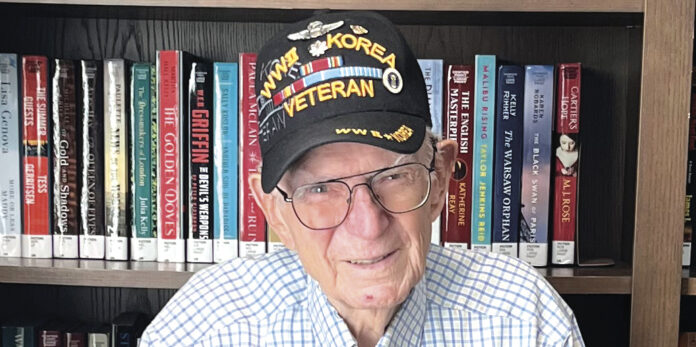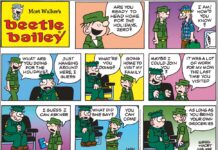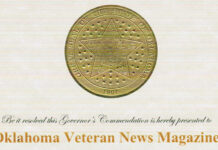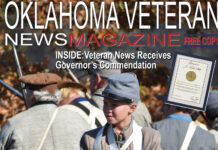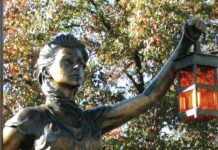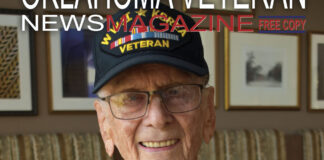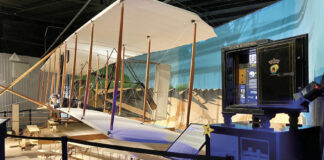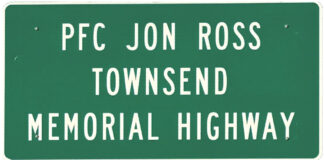Lt. Colonel (Ret.) Bill Williams, 99, was born to fly.
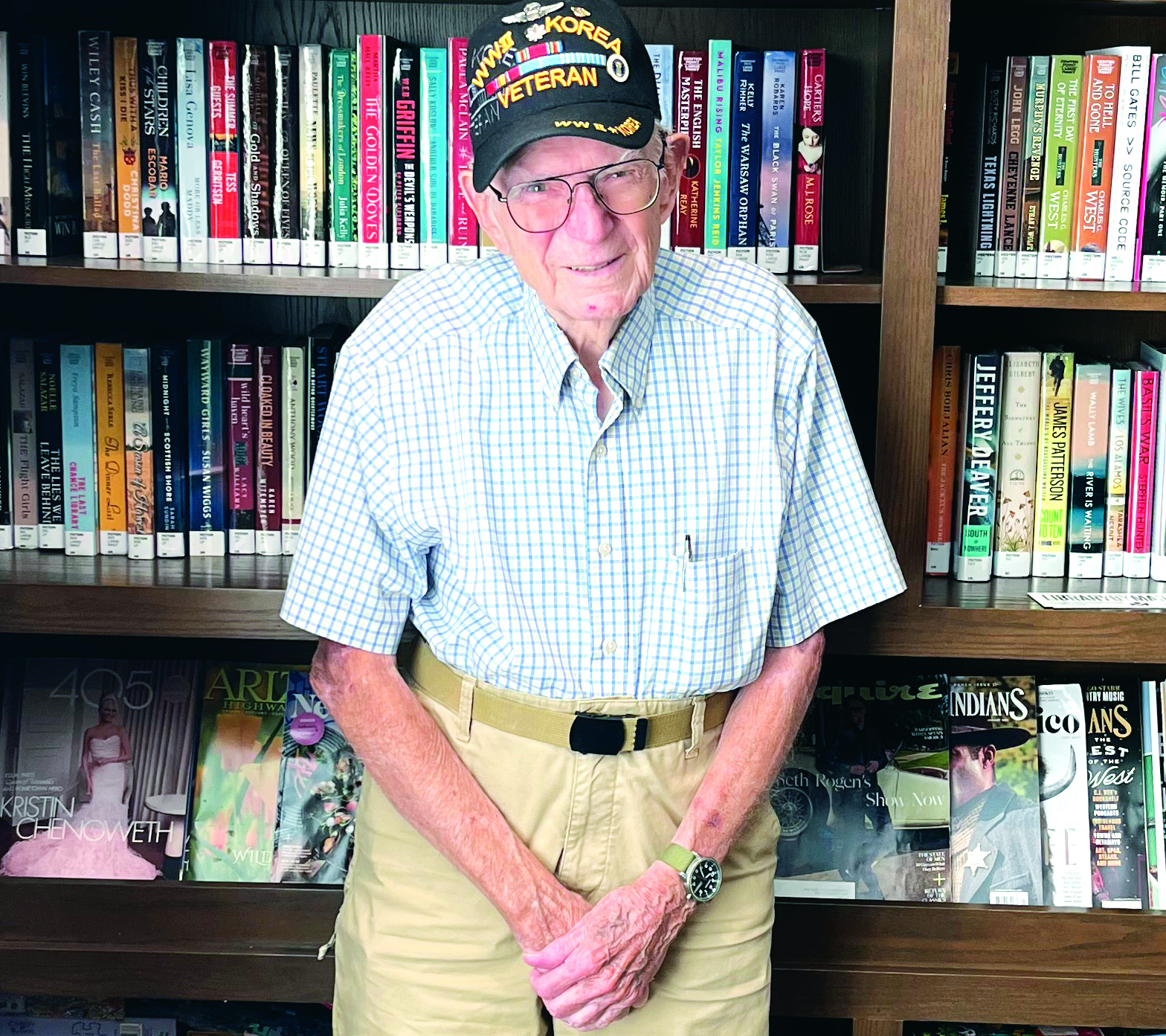
Williams, a resident at Album Quail Springs, a retirement community located at 14201 N. Kentucky Avenue in Oklahoma City, will turn 100 on Dec. 21. A party will be held at noon on Dec. 22 at Album Quail Springs to honor him.
He is a Veteran of World War II and the Korean War.
“The war (World War II) was slowing down, and so my folks let me sign up for the Army. And I signed up for the aviator cadet program, and they called me in July of 1944, and went through the training,” Williams said.
Williams, a North Carolina native, was stationed in Schofield, South Carolina, and later in Montgomery, Alabama awaiting an opening in the aviator cadet program.
Williams, who lived in Alabama as a child, worked weekends at his grandfather’s farm near Montgomery.
“Every weekend I was up on the farm with my uncle on my grandfather’s farm,” he said.
After being discharged from the Army, Williams attended the University of North Carolina for three years, before a fellow student passed on information that changed the trajectory of his life.
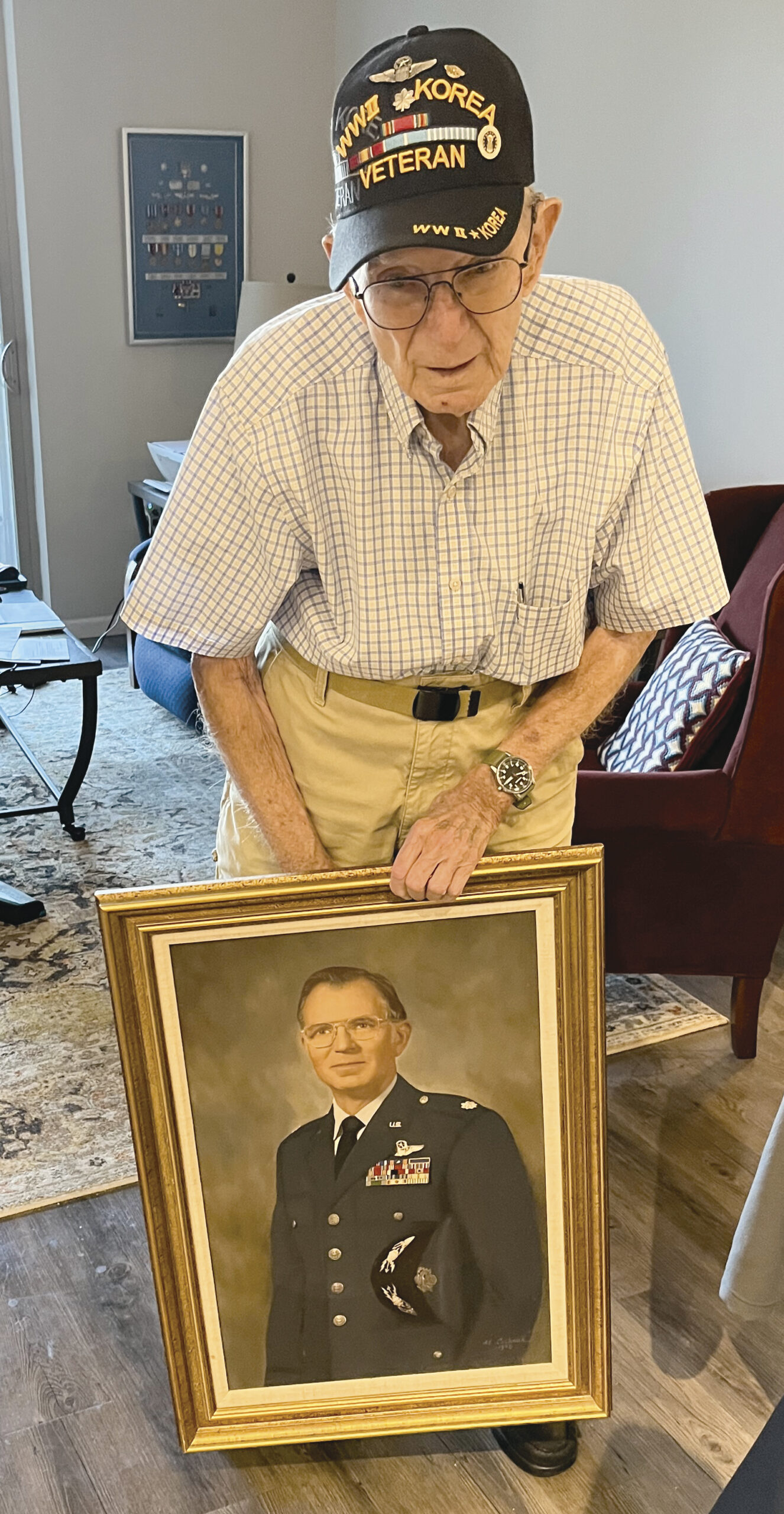
“One morning as I was leaving the barracks to go to class, a friend of mine passed by,” Williams said. “He said, “He said, ‘Hey, I understand the Air Force is recruiting cadets again.’ I said, ‘Good.’ I skipped to class and went to a recruiter in Chapel Hill.”
The Korean War started on June 25, 1950, and ended on July 27, 1953, after the signing of an armistice agreeing that the country would remain divided.
At the end of the Second World War, Korea – which had formerly been occupied by the Japanese – was divided along the 38th parallel. This was an internal border between North and South Korea based on a circle of latitude.
North Korea, supported by the Soviet Union, invaded the south on June 25, 1950, which was supported by the United States.
The three-year war was exceptionally bloody and led to the deaths of 3 million people and tens of thousands of casualties.
Williams was stationed in Okinawa, Japan when the war broke out.
Six weeks later, he found himself flying out of Japan on his first mission against the enemy in Korea.
He flew his jet out of Kimpo Air Base a few miles west of Seoul, but the communist Koreans and Chinese soon put a stop to United States flights out of Kimpo.
In the early winter of 1950, the communists launched an offensive, which nearly pushed the United Nations fighting forces into the ocean.
“The enemy was six miles away from Kimpo. We tried to strafe the advanced troops with rockets and machine guns, but they just overpowered us,” Williams said previously in a newspaper interview. “We evacuated and flew to Japan. They ran us out.”
Williams was with the 16th Fighter Interceptor Squadron of the 51st Fighter Wing. It was the squadron’s primary job to win ground support and go behind the lines and stick and wreck anything that looked military.
Williams was later detached from the Air Force and was sent back to Korea with an infantry division at the front. The Army needed a combat expert pilot to direct fire pilots from the ground to nearby enemy installations.
“I was attached to an artillery group,” he said. “When our ground guns got out of range of targets, I’d call out our fighters, and they’d take over.”
A month later, he returned to his old outfit.
Williams holds the Distinguished Flying Cross for action near the Yalu River when the Chinese started pushing the U.S. out of North Korea.
“The Chinese caught a large convoy of ours in retreat,” he said. “The vehicles were surrounded and the battle probably killed thousands of Americans. We went up there on a flight of two planes, and saw 200, 300 American trucks on the side of the road with no signs of life.”
Williams said he did see the enemy.
“I shot two men near a Howitzer and went from there to another Korean town and found more trucks cut off from the route of retreat,” he said. “We left there and found a couple of hundred Chinese troops on the road. We strafed them and probably killed 50. Later, the two planes returned to the entrapped vehicle and destroyed as many as we could to keep them from falling into the communist hands.”
In the spring of 1951, Williams returned to the US and was stationed in Nevada and Kansas. He has 100 flying missions to his credit over enemy territory in the Korean War.
Williams summed up his thoughts on the Korean War in his newspaper interview.
“You can’t let the communists have everything. The war was justified. President Truman did the right thing,” he said. •
story and photos by Van Mitchell, staff writer


